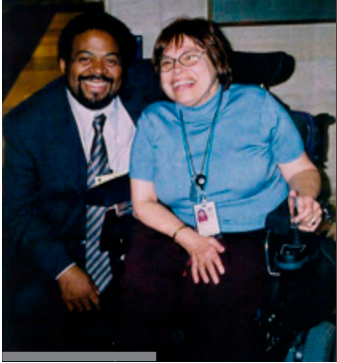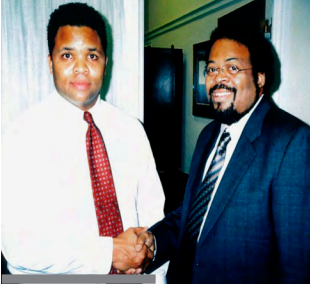Newport Beach, California, United States - 02-16-2023 (PR Distribution™) -



U.S. Supreme Court Justice Elena Kagan grants Children's Special Education case an extension to file their En Cert Petition to the Supreme Court.
On February 14, 2023 OUR LEGAL TEAM FILED THE PETITION FOR WRIT OF CERTIORARI TO THE U.S. SUPREME COURT SEEKING JUSTICE FOR SPECIAL EDUCATION CHILDREN WHO WERE LEFT BEHIND WHEN SCHOOLS CLOSED AND WHO FAILED TO ASSES AND ASSIST WHEN BACK AT SCHOOL
7.3 million Students with Disabilities, and over 200 million Americans, rich, poor, Republicans, Democrats, young, old, and from every religion, seek Judicial Remedies and Justice for most moderate to severe Special Education Students who were set back years with substantial regression.
Further CDE and Districts disregarded Federal laws which call for reassessment of Special education Students when they returned to school to determine how much compensatory education was necessary to address each student's regression.
National analyses over the past year have confirmed what Parents of children with special needs already knew. COVID had a significant negative impact and delayed educational growth for typical students. However, COVID devastated the education of Special Education Students setting most moderate to severe Special Students back years with substantial regression, across the country.
We believe after 2 years of investigation we now know who was responsible, and who violated the law. In California, the (CDE) California Department of Education is ultimately responsible as they violated federal law by (i) effectively waiving LEA’s compliance with the IDEA. Additionally, they failed to address Students with special needs regression by failing to reassess. They knew or should have known from the Federal and State laws, Governor Newsom's SB98, and the IEPs from each Student the detrimental effect of their violations. Yet they did not take the appropriate action, and Special Education Students have suffered tremendous educational loss.

Click here >>> Special Ed Law Division
Educational support is necessary and guaranteed to Special education Students under the IDEA and settlement agreements. Since returning to in-person instruction, this was not made available. Special education students faced disproportionate regression that has rendered services that once met their needs insufficient to ensure a FAPE.
Throughout the remote instruction period, the CDE was entrusted with ensuring school districts met their statutory obligations to provide students a FAPE but failed to do so. When students were first sent home, the CDE told school districts they were not required to reassess students whose IEPs and settlement agreements were drafted under an assumption of in-person instruction.
After effectively waiving the IDEA’s IEP requirements, and despite several months of students with disabilities not receiving the educational services they needed, the CDE has since failed to mandate remedial measures to address ongoing FAPE. In addition, they have graduated students based on age.
CALIFORNIA CDE and other States have pursued this course of action despite the U.S. Department of Education’s (“DOE”) determination that it would not waive IEP requirements during COVID-19; a directive from the Governor of California to ensure children with disabilities were protected through this difficult period. The Governor did the right thing he settled and notified Parents and Students.
Our Legal team sought a declaratory order that the CDE Defendants’ failure to order districts to reassess students after school closures and their continuing refusal to mandate reassessments violated the IDEA. Petitioners also sought an injunction requiring the CDE Defendants to amend their guidance or allow an immediate return to in-person learning. Because of the Ninth Circuit’s erroneous holding on mootness, the court of appeals never reached the merits of Petitioner’s claims and never determined whether the CDE Defendants must take corrective action to restore students’ FAPE rights.
Having Already Sued the Gov. of California and Won. We have been joined by Attorneys Maxwell V. Pritt, Erika Nyborg-Burch and Alex Holtzman of Boies Schiller Flexner as we represent special education students who were denied their education rights during the COVID-19 global pandemic and in other special education matters.
Not Since Brown v. Board of Education Has There Been a Team This Strong Seeking Justice for Kids With Special Needs
 Click here to watch video >>> https://www.kcra.com/article/newsom-acknowledges-shortfalls-special-education-services-during-pandemic/35101601
Click here to watch video >>> https://www.kcra.com/article/newsom-acknowledges-shortfalls-special-education-services-during-pandemic/35101601
COVID-19 has been disastrous for all students. However, for special needs students and their families, it has been catastrophic. This was exacerbated by the fact that experts knew – and Federal Law had safeguards in place in the event something catastrophic ever occurred. Yet they still failed to follow through with implementing those safeguards. Federal Law dictated and the Governor of California mirrored that law: these children need a variety of services from trained experts just to be able to progress at their own pace in their education. When they were sent home and told to participate in virtual distance learning, they instantly lost access to those services and the experts who provided them. Instead, CDE and school districts expected parents – who had zero training in providing speech and language services, physical therapy service and occupational therapy services – to keep these children moving forward. Not only did they lack proper training and necessary equipment, some had jobs they couldn’t abandon, and many other children to care for. Thus, these students’ progress came to a screeching halt. As they began to regress, parents struggled financially and emotionally to deal with the situation. This was inexcusable! The Federal Government, Congress, and the U.S. Department of Education intended that the CDE and districts were to guarantee this didn’t happen; they didn’t and still do not provide equivalent services and accommodations as needed.
It is abominable that school districts sent students with disabilities to learn from home without providing the necessary support, knowing that their actions violated Federal and State Law. Students were sent home to virtual learning without reassessment of their conditions to appropriately address the accommodations required in the distant learning model of education. Instead, they dumped all responsibility on the parents – who were unskilled in teaching their children with maladaptive behaviours or licensed to provide these in-person services. This egregious action should never have happened, as California had more than $1.5 billion in funding earmarked to help special needs students. Yet, most parents received no funds.
As parents struggled, suicides increased. These students were falling through the cracks, losing critical years of education which will set them back throughout their lifetimes. These families pleaded for help, but their appeals went unanswered.
After two years, this was moving at a snail’s pace. So, after examining ways to help, we filed suit. We sued every district in the state – all 977 – because there was no other recourse.
On March 13, 2020, in response to the COVID-19 pandemic, the Governor of California issued Executive Order N-26-20, requiring school districts to close their buildings physically and reassign students to remote learning. That Order directed the CDE to issue guidance to ensure students with disabilities continued to receive a FAPE, including as consistent with their IEPs. Instead, the CDE’s initial guidance suggested compliance with obligations under existing IEPs was permissive, not mandatory. The CDE instructed schools they did not need to conduct any reassessment to account for remote learning. In a Q&A format, the CDE told schools the following:
- Must all Individualized Education Programs (IEPs) be amended to reflect the change to distance learning? No, not all IEPs will need to be amended. In the CDE’s view it is not necessary for an LEA to convene an IEP team meeting, or propose an IEP amendment without a team meeting, for every student, solely for the purpose of discussing the need to provide services away from school, because that change must necessarily occur due to the COVID-19 pandemic.
- The CDE’s April 9, 2020 guidance transformed that earlier suggestion into an affirmative waiver of IEP requirements.
- Soon thereafter, the federal DOE made clear that federal obligations remained in effect despite school closures, “most notably [the provision of] a free appropriate public education.”
- The DOE reaffirmed that LEAs and SEAs “must provide education to all students, including children with disabilities,” and involve parents in decision-making.
- The CDE did not amend its guidance to comply with his directive.
In July of 2020, the California legislature passed SB98, amending state law to require that any LEA that offered remote learning during the 2020-2021 academic year had to provide “[a]cademic and other supports designed to address the needs of pupils who are not performing at grade level, or need support in other areas, such as . . . pupils with exceptional needs.” 2020 Cal. Legis. Serv. Ch. 24 (S.B. 98).6 It further required that remote learning must include “[s]pecial education, related services, and any other services required by a pupil’s individualized education program . . . with accommodations necessary to ensure that individualized education program can be executed in a distance learning environment.” Id. And it required that school districts evaluate whether a student suffered regression, or learning loss, and, if so, address it. Id. The DOE sent a similar message in anticipation of the 2020-21 academic year, reiterating that state agencies like the CDE must ensure a FAPE for all students, regardless of educational setting.7 But the CDE’s September 2020 Guidance continued to disregard these mandates. It continued not to direct LEAs to reassess what services were required to meet IEP goals, or to order compensatory education to address the months students were deprived of necessary supports.8 There is no record evidence that the CDE ever updated its guidance to instruct school districts to conduct reassessments or to provide compensatory education to account for the many months of remote schooling when students with disabilities and their teachers were not given the resources to ensure a FAPE, and the regression students faced when they returned to the classroom far behind their IEP goals.
As a result of the CDE’s directives, California’s LEAs were left to choose for themselves whether to conduct reassessments or provide compensatory education to address the fact that existing IEPs were built around in-person instruction. After being sent home in March of 2020, none of Petitioners received the services to which they were entitled under their IEPs in more than a token form, if at all. See, e.g., ECF No. 1, at 56-59, 61. For example, Petitioners could not receive any physical assistance, despite their IEPs and settlement including requirements such as physical therapy (id. at 58); assistance holding any item that requires a two-handed grasp, (id.); and hand-over-hand assistance (id. at 55-56). In addition, Petitioners no longer received the 1:1 support they needed. See id. at 60. None of Petitioners were contacted by their LEAs to determine their need for appropriate accommodations under the changed circumstances of remote education (id. at 56-58, 60), and no new accommodations were offered even as these students struggled and regressed (id. at 56-59, 61). As a result of being deprived of his IEP services, D.P. began “displaying regressive behaviors.” Id. at 55-56. Similarly, because “environmental reinforcements [were] unavailable during distance learning,” K.P. had “no progress made toward any of her IEP goals.” Id. at 56. And without the accommodations required under P.C.’s settlement agreement, remote learning quickly became “an ever-increasing impossibility as more time passe[d] and her work slip[ped] further and further behind.” Id. at 60.
Schools had already been closed and special need students were regressing at alarming rates. They experienced frustration, uncontrollable behaviors outbursts, and even self-inflicted injuries. They were unable to understand why their routine had abruptly stopped. Lifestyle changes are difficult for anyone, but they are magnified for those special needs children whose lives revolve around routines.
An understanding of what will come next and how things are supposed to be.
School districts failed to address these areas before sending these students home; they also ignored the law by neglecting to inform parents. This sent parents and students into a tailspin of massive chaos with no remedy in sight.
Tragically, the state superintendent of instruction and most of the districts wanted to fight rather than solve this problem. They appeared to “stall” with the understanding most law firms would run out of funds or legal expertise to push a case to the 9th Circuit or Supreme Court.
Special education students reaching into all aspects of society, regardless of race, income, religion, sex, political affiliation. Everyone, has experienced the pain; our children could have and should have been addressed when schools closed. We established that Federal and State law requires services in a student’s IEP MUST have been provided.
The Governor's attorneys turned out to be a lot smarter and wiser than the State Superintendent of Instruction. They realized we were not seeking monetary damages for the students; we were seeking compensatory services to address the year that services were not provided. We were seeking the services the students were already promised by federal laws. We were seeking the basic education that distant virtual learning was not able to provide our children. We were seeking justice for children who struggle daily to do the things most of us take for granted.
Violations upon students’ return to the classroom.
The agency has pursued this course of action despite the U.S. Department of Education’s (DOE) determination that it would not waive IEP requirements during COVID-19. And there was a directive from the Governor of California to ensure children with disabilities were protected during the lockdown. He also communicated to the public SB98 confirmed Students with IEP's were to receive their services per Federal and State law.
As a result, many of the parents suddenly realized they did have rights and that their districts and the CDE should not have abandoned them. For example, we are aware of a child with autism who is receiving less than 20 minutes of virtual contact a week. Even worse, a significant number of children had no ability to focus on a small screen. A chrome book is much smaller than most television sets. Six- and seven-year-olds felt it was an ongoing commercial which meant they could get up and go play.
Petitioners sued the CDE and relevant state officials and school districts throughout the State of California on behalf of a putative class of students with disabilities. Petitioners asserted that the CDE Defendants repeatedly abrogated their responsibilities to ensure school districts complied with the IDEA, including in successive policy guidance. Petitioners sought a declaratory order that the CDE Defendants’ failure to order districts to reassess students after school closures and their continuing refusal to mandate reassessments violated the IDEA. Petitioners also sought an injunction requiring the CDE Defendants to amend their guidance or allow an immediate return to in-person learning. Because of the Ninth Circuit’s erroneous holding on mootness, the court of appeals never reached the merits of Petitioner’s claims and never determined whether the CDE Defendants must take corrective action to restore students’ FAPE rights.
Instead, the Ninth Circuit relieved the CDE Defendants of the heavy burden of proving Petitioners’ claims were moot by ignoring the ongoing injuries to Petitioners and the availability of meaningful relief to address those harms. This Court’s case law makes clear that a change in circumstances—here, the rescission of the Governor of California’s stay-at-home order—does not, and indeed cannot, moot.
This case raises crucial questions about an SEA’s (CDE for California) and other basic agencies failure of their obligations to students with disabilities under the IDEA when school districts shut the classroom doors on them. Congress enacted the IDEA to ensure students like Petitioners are not excluded from public education or civic participation. 20 U.S.C. § 1400(d). The Act provides students with disabilities the right to a FAPE, including educational services that will provide them educational opportunities alongside their peers. Id. at §§ 1400(d); 1401(9); 1412(a)(1)(A). The IEP is the “modus operandi” of these substantive protections. Sch. Comm. of Town of Burlington, Mass. v. Dep’t of Educ. of Mass., 471 U.S. 359, 368 (1985). It includes a comprehensive statement identifying the educational needs of and services for each child and front-and-back-end procedures to ensure its effectiveness. 20 U.S.C. §§ 1401(14); 1414; 1415.
If a Parent grew up near a factory and was breathing hazardous air and had a child with a disability who needed an aide at school to help them learn the basics: reading and writing. This would be essential in future years to obtain a job. Americans don't have a problem with Special Education to help the child to receive an education.
If a toddler became ill, and a dangerously high fever harmed the child’s brain, that child could receive Special education services. Americans don't have a problem with that.
If two perfectly healthy parents have three healthy children but the fourth is born with a disability and cannot hear, this child would receive an IEP and special education services. Again, Americans don't have a problem with that.
If a mother becomes ill and her 6-year-old child is diagnosed with a learning disability and needs an IEP and special education services, Americans don't have a problem with that.
If a child at age three is one of the 22 who is diagnosed with autism and requires IEP and special education services, Americans don't have a problem with that.
If a high schooler who plays football, swims, plays hockey, or basketball is injured and requires and IEP and special education for three years Americans don't have a problem with that.
If a 4th grader is involved in a car accident and suffers severe head injuries and requires Special education to obtain a skill, Americans don't have a problem with that.
Americans don't have a problem with understanding a disability and special education services can be required for any child, of any race, any political party affiliation, income bracket, religion, any State, at any time of life.
We know that regardless of disability, all children can still learn, should have the opportunity to learn.
Support for special education students crosses into all aspects of all people.
The reassessment after Covid required school districts to measure every Individual Education Program contract (IEP).
We’ve seen IEPs where the district lays out the services that are needed and then only agrees to offer them once the pandemic is over.
Never having the reassessments when regression not only anticipated - it was expected.
These aren’t isolated; issues are commonplace. Across the state, people were just starting to discover they were entitled to compensatory education when the two-year statute ended. Moreover, parents were just starting to demand what is right: -an assessment for 7.3 million American students with disabilities. Students are just starting to demand those rights, as neither Districts nor the CDE were actively notifying parents.
This case involves the immense regression and loss of learning suffered by approximately 800,000 students with disabilities in the State of California as a result of the CDE’s continuing failure to order school districts in California to ensure those students receive a FAPE under the IDEA after the transition to remote learning. Absent review by this Court, Petitioners and hundreds of thousands of other students with disabilities in California will have no recourse to obtain the compensatory education necessary to restore a FAPE after being deprived of that right for years. For all the foregoing reasons, the Court should grant this petition for a writ of certiorari.
The IDEA makes SEAs “responsible for general supervision” to ensure students with disabilities like Petitioners receive a FAPE, including through the IEP process. Id. at §§ 1412(a)(11), (a)(12)(A); 1415(a), (b)(1). It further directs SEAs to “support and facilitate” LEAs to “enable children with disabilities to meet” academic achievement standards. Id. at § 1407. The CDE serves as the SEA for the State of California, and thus is responsible for ensuring that approximately 800,000 students with disabilities receive a FAPE.
The IDEA provides a process for parents, guardians, and students to enforce their rights in federal court. 20 U.S.C. §§ 1415(i), (l). While these litigants generally must first exhaust their claims before the administrative agency, such exhaustion is excused in the Ninth Circuit when 1) “it is improbable that adequate relief can be obtained by pursuing administrative remedies,” 2) “it would be futile to use the due process procedures,” or 3) the plaintiff seeks structural reforms for a “policy or practice of generalized applicability.” Hoeft v. Tucson Unified Sch. Dist., 967 F.2d 1298, 1303–04, 1309 (9th Cir. 1992); see also Honig v. Doe, 484 U.S. 305, 327 (1988) (“exhaustion should not be required in cases where such exhaustion would be futile either as a legal or practical matter”) (quoting 121 Cong. Rec. 37416 (1975) (remarks of Sen. Williams) (cleaned up). Other circuits likewise have recognized that exhaustion may be excused when the alleged statutory violation.
Today we filed that Supreme Court petition for 7.3 million Students with Disabilities, and over 200 million Americans, rich, poor, Republicans, Democrats, young, old, and from every religion, seek Judicial Remedies and Justice for most moderate to severe Special Education Students who were set back years with substantial regression.
Further, after disregarding Federal laws which call for reassessment of Special education, when students returned to school to determine how much compensatory education was necessary to address each student’s regression.
The U.S. Department of Education specifically directed the State overseers (SEL) CDE who oversees school Districts that reassessment must be performed on every Student once they return to school. The CDE then failed to notify Districts of the directive from the U.S. Department of Education. To make matters worse, the CDE informed Districts they did not have to reassess all Students with IEPs – in direct contradiction from what the U.S. Department of Education formally stated in writing.
___________________________________________________________________
We have been joined by Attorneys Maxwell V. Pritt, Erika Nyborg-Burch and Alex Holtzman of Boies Schiller Flexner represent special education students who were denied their education rights during the COVID-19 global pandemic in a 9th Circuit court case for Oral Argument with James D. Peters III present.
Boies Schiller Flexner a “national litigation powerhouse” (The Wall Street Journal) and as “one of America’s most successful and sought-after law firms for cases that matter” (The American Lawyer).
Boies Schiller Flexner has a long history of appellate success across a wide range of matters and appellate courts, including the U.S. Supreme Court. Boies Schiller Flexner has done what others just say on paper. Some of their most visible and celebrated cases have championed civil rights, the well-being of children, and important matters of public interest.
Special thanks to Boies Schiller Flexner Max, Erika Nyborg-Burchand, and Alex. They have not only joined the fight as they are appearing Pro Bono for the 800,000 Special Education Children in California's 9th Circuit, which will also assist the 7.3 million Special Education Children in the United States!
Our Special Education Law Firm Executive Director James D. Peters III announced in March 2020. "No parent will be charged a retainer or any other fees when suing to obtain educational compensatory education for their child." However, time is running out! Click on the link! https://vimeo.com/668264145/5b15229a9c
__________________________________________________________________________________

MAXWELL V. PRITT
Lead Attorney
Max tries high-stakes cases for plaintiffs and defendants in courtrooms across the country. He has secured significant victories for his clients in antitrust and unfair competition, trade secret, copyright, class action, securities, fintech, cannabis, civil rights, and other disputes, including a complete defense verdict in a billion-dollar antitrust class action
Max is Chair of the Bay Area Lawyer Chapter of the American Constitution Society and was appointed by the California State Bar to the Judicial Council of California, which is responsible for ensuring the consistent, independent, impartial, and accessible administration of justice. He also recently served on the Judicial Nominees Evaluation Commission of the California State Bar, which vets the governor's potential judicial candidates. In addition, Max is a Lecturer in Law at Stanford Law School and has taught at UC Hastings College of the Law, and he regularly presents on intellectual property, constitutional, and trial practice issues for legal industry and educational groups. Before joining Boies Schiller Flexner, Max clerked for Ninth Circuit Judges Marsha S. Berzon and Mary H. Murguia.
Max is the joint leader of the firm's San Francisco office.
ADMISSIONS
California
- U.S. Court of Appeals: Ninth Circuit
- U.S. District Court: Northern District of California
- U.S. District Court: Eastern District of California
- U.S. District Court: Central District of California
- U.S. District Court: Southern District of California
- U.S. Supreme Court
- Hon. Marsha S. Berzon, U.S. Court of Appeals: Ninth Circuit
- Hon. Mary H. Murguia, U.S. District Court: District of Arizona

ERIKA BURCH
Senior Attorney
EDUCATION
Yale Law School, J.D.; Editor, Yale Law & Policy Review; President, Project for Law and Education
Brown University, B.A., magna cum laude , International Relations, Hispanic Studies; Fitcher Prize
Erika joined the firm after practicing civil rights and liberties litigation with the ACLU. Prior to this position, Erika worked as an immigration attorney for The Bronx Defenders. Erika also clerked for the Hon. Thomas L. Ambro of the U.S. Court of Appeals for the Third Circuit.
At Yale Law School, Erika was a member of the Workers and Immigrants' Rights Advocacy Clinic and the Criminal Justice Clinic. She defended clients before federal agencies, federal and state trial-level courts, and in the Second Circuit Court of Appeals. She was also a founding member of the Asylum Seeker's Advocacy Project where she coordinated representation for families detained in immigration detention. Prior to law school, Erika taught primary school in New Orleans, Louisiana.
CLERKSHIPS
- Hon. Thomas L. Ambro, U.S. Court of Appeals: Third Circuit
- Boies Schiller Flexner

PETE COLLISION
Senior Attorney
Special Education Law Division of Law Offices of Sheila C. Bayne.
Pete has been an attorney at law and licensed to practice before all courts of the State of California and all federal courts within or serving California. He graduated from Vanderbilt Law School in 1972 and was admitted to the California Bar in that year. He was on the Editorial Board of the Vanderbilt Law Review. He has served as the Chair of the Federal Courts Committees of the Los Angeles County Bar Association and the California State Bar Association. ?He practiced civil litigation, as a litigator, in all counties in Southern California since Pete began his law practice in 1972. He has represented the Santa Ana Unified School District in administrative proceedings and represented the San Jose Unified School District in federal civil litigation. He has represented the Pasadena Unified School District in both state and federal (including the U.S. Supreme Court) civil litigation and in administrative proceedings. He also represented various parents and/or their children in administrative proceedings relating to claims for a free and appropriate public education. Pete has worked with and mentored James D. Peters III the Law Firms Ex. Director for over a time, span of 30 years.

ALEX HOLTZMAN
Senior Attorney
Associate at Boies Schiller Flexner LLP - Yale Law School
Alex is a trial and appellate litigator in the San Francisco office. His practice focuses on state and federal complex civil litigation. Alex has particular expertise in pretrial and appellate procedure. Alex joined BSF after clerking for Judge Michelle Friedland of the Ninth Circuit Court of Appeals and Judge Vince Chhabria of the Northern District of California.
In law school, Alex was a Coker Fellow, managing editor of Yale’s Journal on Regulation, and executive editor of the Yale Law & Policy Review. Alex received the Massey Prize for client and community service and interned for Vice Chair Ann Ravel of the Federal Election Commission.
Alex was a Stanford Fellow at the Lawyers’ Committee for Civil Rights and interned for San Francisco Mayor Gavin Newsom and District Attorney Kamala Harris.
Yale Law School is one of the world’s premier law schools, offering an unmatched environment of excellence.

JULIA BRONT
Junior Attorney
University of California, Berkeley School of Law, J.D. Tufts University,
Julia practices high-stakes commercial litigation, representing plaintiffs and defendants across industries in both state and federal courts. She has diverse experience in both trial and appellate litigation, including commercial disputes, class action lawsuits, constitutional issues, and antitrust law.

BREANA S. SICLE
Junior Attorney
UC College of the Law, San Francisco (formerly UC Hastings College of the Law)
Breana practices complex commercial litigation, representing plaintiffs and defendants in both federal and state court. She has diverse experience, including matters involving health care, commercial disputes, and antitrust law.
______________________________________________________________________________

JAMES DANIEL PETERS III
EXCUTIVE DIRECTOR
TESTIFIED BEFORE CONGRESS ON SPECIAL EDUCATION
FORMER NATIONAL DEV. COR. FOR TASH
Jim has testified before Congress regarding the re-authorization of IDEA. He is one of the top legal minds regarding Special education. He has special knowledge of Autism, Educational Law, Autism services, and works with many of the top Educational Consultants, Psychologists, and Professors from around the country. He is the former National Development Coordinator for TASH. He has advised Congressional members, Governors, U.S. Senators and White House Cabinet members regarding disabilities.

HISTORICAL MOMENT
CONGRESSMAN DAN BURTON (R) (IND)
AND JAMES DANIEL PETERS III

HISTORICAL MOMENT
JUDY HUEMANN AND JIM PETERS HAVE BEEN FRIENDS FOR OVER 20 YEARS. JUDY HUEMANN IS THE FORMER ASSISTANT U.S. SECRETARY OF EDUCATION IN THE CLINTON ADMINISTRATION.

HISTORICAL MOMENT
CONGRESSMAN JESSIE JACKSON III, AND JAMES PETERS III WORKING IN WASHINGTON D.C.

HISTORICAL MOMENT
JAMES DANIEL PETERS III, & STEPHANIE LEE DIR. SPECIAL ED, PROGRAMS UNDER PRESIDENT GEORGE BUSH’S ADMINISTRATION.

HISTORICAL MOMENT
CONGRESSMAN BOBBY SCOTT (D) VIRGINIA
AND JIM PETERS
GOVERNOR JEB BUSH AND JIM PETERS
Jim has been helping people with disabilities and their families to search for human dignity and companionship for over 20 years. He livesand understands the feelings and struggles of over seven million Americans who have disabilities or who have family members with disabilities, or are affected
by disability laws. He has been improving and enabling education for all. He has taught Special Education Law at California New Hope University, and communicates regularly with members of Congress on both sides of the aisle.

U.S. SENATOR JIM JEFFORDS FROM VERMONT AND JIM PETERS III DISCUSS SPECIAL EDUCATION LAWS
Jim Peters found himself fighting his school district for appropriate educational placement and services for his young son and attending law school. Jim had quick successes against the school District. Just as quickly, he had other parents seeking information and his assistance with their children as well. Assistance for children not only diagnosed with autism, but other severe disabilities. Jim then became proficient in services, programs, treatments, and laws pertain to various diagnosis..jpg)

Media Contacts:
Company Name: Autism Laws
Full Name: James D. Peters III
Phone: (949) 636-6994
Email Address: Send Email
Website: https://www.autismlaws.com/
For the original news story, please visit https://www.prdistribution.com/news/in-the-supreme-court-of-the-united-states-special-education-students-seek-justice-our-legal-team-filed-the-petition-for-writ-of-certiorari-to-the-u-s-supreme-court/9546911.







